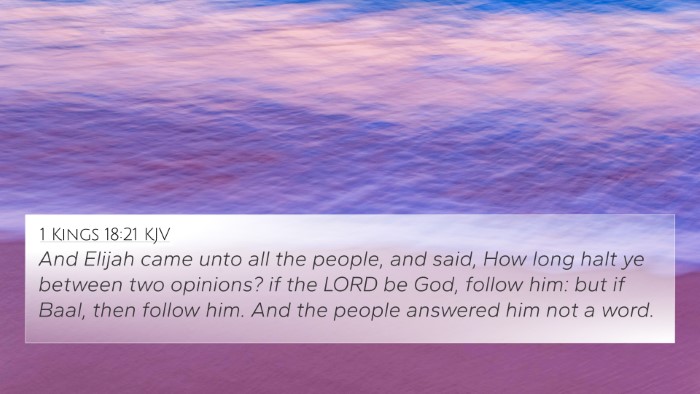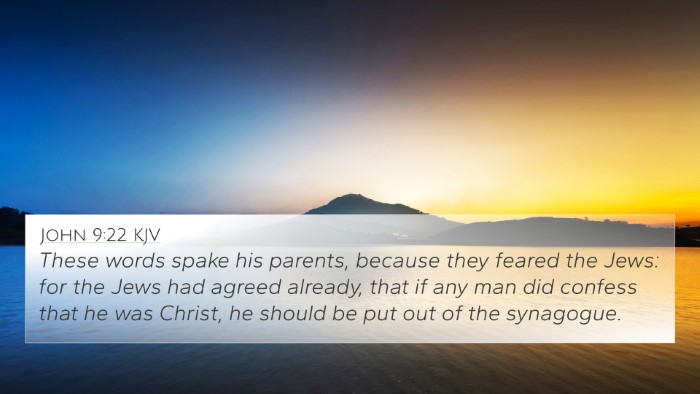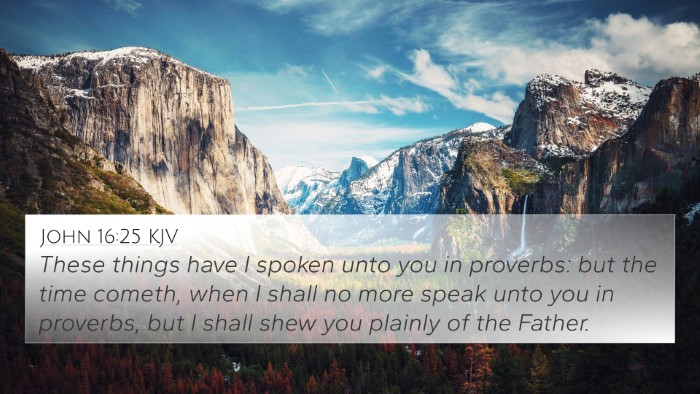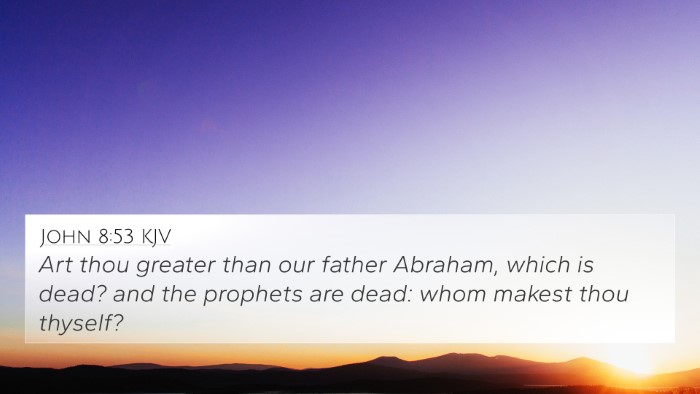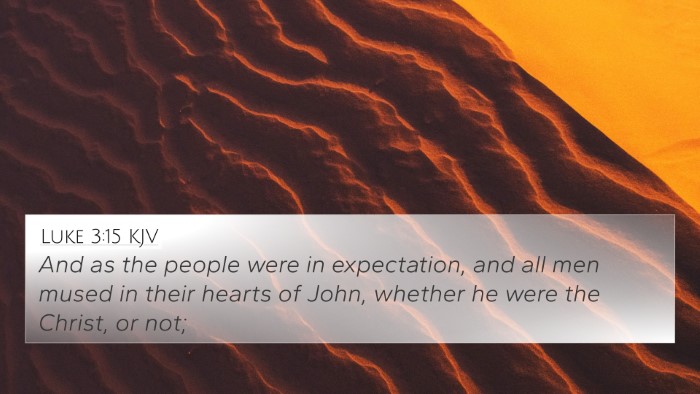Understanding John 10:24
John 10:24 states, "The Jews gathered around Him and were saying to Him, 'How long will You keep us in suspense? If You are the Christ, tell us plainly.' This verse captures a crucial moment where the Jews demand clarity from Jesus regarding His identity as the Messiah. Below is a detailed interpretation of this verse, referencing insights from esteemed public domain commentaries such as those by Matthew Henry, Albert Barnes, and Adam Clarke.
Verse Context and Background
In the context of John 10, Jesus is engaging in a dialogue with the religious leaders and the people who are grappling with His claims and teachings. The question posed in this verse reflects a deep-seated desire for assurance regarding His identity and mission. The Jews' insistence on a clear answer indicates their uncertainty and the cultural expectations surrounding the Messiah.
Insights from Commentaries
-
Matthew Henry:
Matthew Henry emphasizes the nature of doubt in the hearts of the questioners. He points out that despite witnessing Jesus’ miracles, they still require explicit confirmation of His claims. This illustrates the hardness of heart that leads to skepticism, even in the presence of divine acts.
-
Albert Barnes:
Albert Barnes notes the significance of the term "Christ," contextualizing it within Jewish expectations. He explains that the Jews wanted a politically liberating figure, indicating their misalignment with Jesus’ spiritual mission as the Messiah. Barnes encourages readers to recognize Jesus' position as both a revealed truth and a matter of faith.
-
Adam Clarke:
Adam Clarke delves into the need for Messiah to be acknowledged publicly. He suggests that the request for a clear answer points to the expectations of the Jewish law. Clarke highlights that Christ's silence or indirect responses often pertained to the deeper spiritual truths rather than mere political claims.
Bible Cross-References
This verse has several cross-references within the Bible that enhance its understanding:
- John 1:20 - "And he confessed, and denied not; but confessed, I am not the Christ." This reference shows early declarations of identity leading to the expectations of the coming Messiah.
- John 4:25 - "The woman said to Him, 'I know that Messiah is coming (He who is called Christ); when that one comes, He will declare all things to us.'" Here, we see a similar inquiry about the Messiah’s identity.
- Matthew 16:15 - "He said to them, 'But who do you say that I am?'" Jesus challenges His followers to express their understanding of His identity, linking personal recognition with faith.
- Luke 7:19 - "And John calling unto him two of his disciples sent them to Jesus, saying, 'Art thou he that should come?'" This reflects the ongoing inquiry into Jesus' identity as the awaited one.
- Isaiah 53:1 - "Who hath believed our report? and to whom is the arm of the LORD revealed?" This Old Testament verse highlights the enigmatic nature of the Messiah's revelation.
- Acts 2:36 - "Therefore let all the house of Israel know assuredly that God hath made that same Jesus, whom ye have crucified, both Lord and Christ." This emphasizes the culmination of Jesus' identity as recognized in the early church.
- Hebrews 1:1-2 - "God, who at various times and in various ways spoke in time past to the fathers by the prophets, has in these last days spoken to us by His Son." Points to the final revelation of God through Jesus.
Thematic Connections
Several themes emerge from John 10:24 that can be explored further through cross-referencing:
-
Identity of Christ:
The repeated questioning of Jesus’ identity suggests a broader theme of recognizing the true nature of the Messiah, which can be explored through various passages.
-
Faith and Doubt:
Thomas’ doubt in John 20:25 mirrors the uncertainty displayed here, providing a deeper reflection on the challenge of faith amidst visible miracles.
-
Fulfillment of Prophecies:
References such as Isaiah speak to the Jewish understanding of prophecies, necessitating a connection to New Testament fulfillments.
-
Public vs. Private Revelation:
Jesus’ subtlety in revealing His identity invites analysis regarding how God communicates with humanity.
Conclusion
In summary, John 10:24 highlights a pivotal moment of inquiry about Jesus’ Messiahship, encapsulating the tension between expectation and revelation. Through a comparative analysis of related verses and theological commentary, one can uncover richer insights into the faith journey of those who seek understanding. As demonstrated, engaging in scriptural cross-referencing not only deepens comprehension but also fosters a meaningful dialogue across different parts of the Bible, enhancing spiritual growth and understanding.
Tools for Further Study
For those looking to explore the connections between Bible verses further, consider utilizing:
- Bible concordance for locating themes and keywords
- Bible cross-reference guides for structured study
- Digital tools for cross-referencing Bible study methods
- Comprehensive materials for Bible chain references
Call to Action
As you delve deeper into the scriptures, remember to reflect on the connections you uncover. Consider how the themes of identity, faith, and prophecy interweave across the Biblical narrative.






